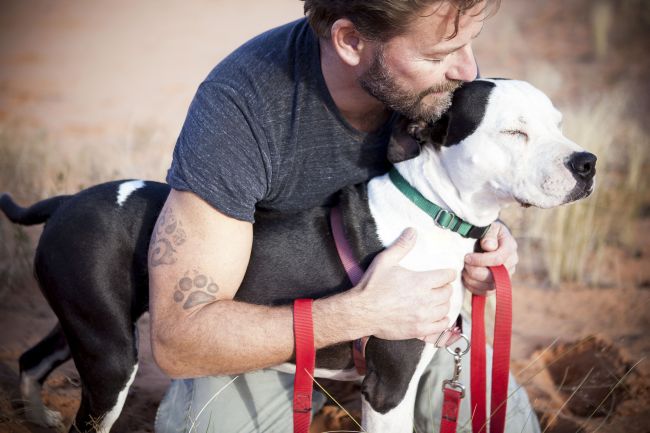Because of their high human attack rate, Pit Bulls are a controversial breeds. Owning a Pit Bull presents numerous concerns, causing pet-parents to consider: is that rambunctious dog just a playful pup, or is his behavior an indication of future challenges? Such concerns are perfectly reasonable, as Pit Bulls can live up to their reputation as dangerous dogs.
Before the 1980’s most pet shelters and dog rescue homes would nearly always euthanize any Pits or Pit-mix breeds for the safety of the dogs and workers on site. Since that time, they have slowly become more acceptable, and can now be found ubiquitously at shelters throughout the country.
Due to the shockingly high rate of child attacks made by Pit Bulls, many people are hesitant to bring this breed into their family since it is difficult to determine which dogs will make good pets, and which may pose a threat in the future. Though most Pit Bulls seem excited and happy to meet you, according to seasoned Pit Bull trainer Sue Sternberg, it can be very challenging to spot the warning signs of what will prove to be an aggressive attacker until it’s too late. Here are some of the typical tells to look out for:
Signs of a Dangerous Pit Bull
- A dog who is quickly engaged but difficult to calm down. Sternberg notes that the dogs she experienced the highest level of threats with originally showed the most focus and aggressive tendencies with toys. While chewing a toy, or playing with other dogs the Pits that were fast to engage and the most difficult to disengage proved to be the most dangerous later on.
- Dogs who resist restraint and affection. A Pit Bull that habitually avoids petting, or gentle restraint may be problematic. If they attempt to shake you off, wiggle out of a hold, or even apply subtle pressure with their mouths or paws, this kind of dog is one to be wary of.
- Pups with aggressive tendencies in playtime. Most dogs seem to enjoy tug-of-war, but when Pit Bulls pull roughly, shake, aggressively chew up the rope, or climb up it to pull the rope out of your hands, they are showing you signs to be concerned about.
Trainers advise that anyone who purchases either a pure-bred Pit, a mix, or adopts a shelter Pit Bull should consult a behaviorist first. This is especially important for those who have children, or may themselves have more of a passive personality. Failing to select a docile dog, and neglecting to give him the proper training could prove a fatal mistake.

